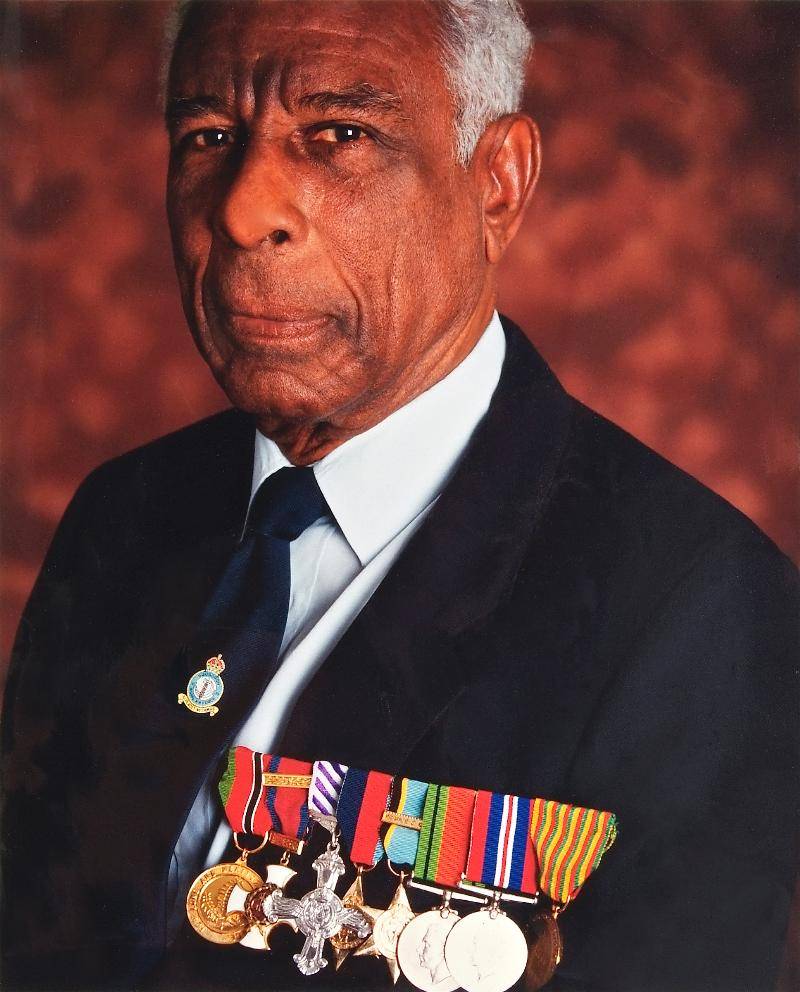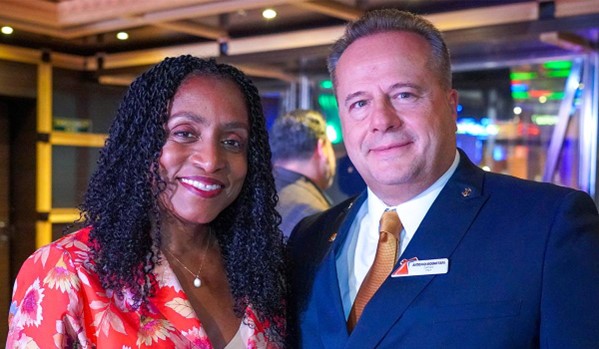Known as the Black Hornet, Ulric Cross was a Squadron Leader in the RAF and is described by some as one of the most decorated airmen who flew during the Second World War. Achieving his childhood dream, he was awarded the Distinguished Flying Cross in 1944 for being a "fine example of keenness and devotion to duty" and his "exceptional navigation ability" when he held the rank of Flight Lieutenant and the Distinguished Service Order.
As a young man in his native Trinidad, he was part of a reading group and one of the books they read was Adolf Hitler's 'Mein Kampf' - the Nazi Party leader's autobiographical and political manifesto - and so were aware of the dictator's extreme antisemitism. The idea of the world in which they lived being dominated by a man like Adolf Hitler encouraged the men to take action.
They had also seen Japan invade Manchukuo in 1932, Italy invade Abyssinia in 1935, the Spanish Civil War in 1937 and were worried that Fascism was becoming out of control. Out of the ten learning Greek with Cross at St Mary's College in Trinidad, six joined the RAF.
But these men were also young and adventurous with an idealistic desire to fly for the RAF after reading heroic tales of the pilots who flew Spitfires and Hurricanes during The ‘Battle of Britain’ - described by some as the first major military campaign fought entirely in the sky. So he, along with 249 other Trinidadians, sailed over to the UK to join the RAF and play their part in ridding the world of Adolf Hitler.
In his youth, he would often write ‘Flight Lieutenant PLU Cross, DFC’ in his schoolbooks – specifically his green Kennedy's Latin Primer and in Shakespeare's 'As You Like It'. Growing up in the 1930s in Trinidad, Philip Louis Ulric Cross thought there was no greater human on earth than a Flight Lieutenant in the Royal Air Force with a Distinguished Flying Cross.
His childhood dreams of becoming a pilot came true after several tests, both in Trinidad and the UK - becoming one of 250 young Trinidadian men who headed to Europe to fight in a war happening thousands of miles away from home - a deal that Prime Minister Winston Churchill made with American President Franklin D. Roosevelt meant that in exchange for 50 US Navy Destroyers, the American armed forces were given bases throughout the Caribbean, including Trinidad which had Waller Army Airfield and Carlsen Army Airfield among others.
Cross' first posting was to RAF Hemswell, Lincolnshire. After completing his navigation training there, he was sent to RAF Cranwell to learn how to become a wireless operator and then spent six months on the west coast of Scotland. In all, the training took a year and in November 1942 Pilot Officer Cross was posted to 139 (Jamaica) Squadron who flew de Havilland DH.98 Mosquito bombers.
In total, the RAF navigator completed 80 missions across Europe, preventing Nazi airmen from shooting down about 200 RAF bombers. Cross completed 50 missions and fulfilling his dream of helping Britain defeat Hitler.
Speaking to author Gabriel Christian in April 2008 for his book 'For King & Country: The Service and Sacrifice of the British West Indian Military' which was co-written with author Irving Andre, Cross remembered a particularly tough mission which ended with a narrow escape, saying: "My most harrowing mission was when one of the engines of our Mosquito fighter-bomber was shot up over Germany and we came down to 7,000 feet from 35,000 feet.
"We struggled back to England and crash-landed in a quarry. It was a narrow escape but we made it out alive."
In 1943 Ulric appeared in the Ministry Of Information's video 'West Indies Calling' which was inspired by the BBC's 'Calling The West Indies'. The video was created to show to those living in the West Indies what life was like for their fellow countrymen and women who had travelled to the UK to join the armed forces during the Second World War.
After his air force career, Cross was called to the bar in London in 1949 after which he had a long career in law in several countries. He was a Legal Adviser to the Controller of Imports and Exports in Trinidad, Senior Crown Counsel and lecturer in Ghana, Attorney General in West Cameroon and Judge of the High Court of Tanzania.
He took a short break from law in the 1950s to become a Producer/Presenter for the BBC in London. In the 1970s, he was Judge of the High Court and later, Judge of the Court of Appeal in Trinidad and Tobago.
In 1990, he was appointed High Commissioner for Trinidad and Tobago in London. About 55 years after Cross left the RAF, he became the inspiration behind the Black character, Squadron Leader Charles Ford, who appears in Ken Follett's novel 'Hornet Flight'.
Speaking in 2008 for the Imperial War Museum, he said: "I was told that I was going to be a navigator and I said; 'but I came to be a pilot' and they said 'we have pilots, what we do not have now is navigators'." Author Will Iredale’s book 'The Pathfinders' tells the incredible story of the elite team, which included Cross, who transformed RAF Bomber Command to help the Allies defeat Nazi Germany.
Ulric Cross died in the Port of Spain, in Trinidad and Tobago, in 2013. He was 93.











